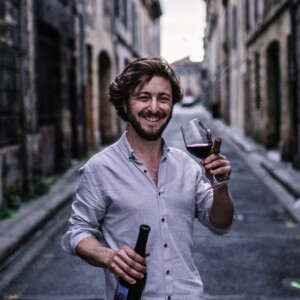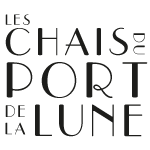Chais du Port de la Lune

Laurent Bordes
About
Owner & winemaker: Laurent Bordes
Vineyards: Purchasing fruit from partner-growers in ten different regions of France
Vineyard management: All vineyards are certified organic, and some use biodynamic practices
Soils: Varied by site
Grapes grown: Chardonnay, Colombard, Chenin, Merlot, Cabernet Franc, Syrah, Carignan, Grenache, Gamay
Annual production: 50,000 bottles
Quick facts:
- Laurent Bordes helms this modern négociant project which sources grapes from partners in ten different regions of France.
- “Port de la Lune” means “Port of the Moon,” which is another name for the city of Bordeaux.
- The winery itself is in a converted former bunker on the outskirts of Bordeaux–the area, full of these abandoned WWII relics, has been reinvented as an art and industrial district.
Bordeaux is one of the most historical and traditional wine regions in France, but Laurent Bordes is showing that it can still be fertile ground for innovation and creativity. His project, “Les Chais du Port de la Lune,” which translates to “the cellars of the port of the moon,” is a modern take on the classic négociant model. He sources fruit from vineyard partners across ten different regions in France, then vinifies his own cuvées in an urban winery in Bordeaux, constructed from a renovated WWII-era bunker. (In addition to being a creative repurposing of unused space, the thick concrete walls are perfect for natural temperature control.)
All of Laurent’s partner growers are either certified organic or in conversion. By purchasing grapes at a fair price, he supports the farmers’ efforts to continually improve their vineyards and produce better and better fruit each year. Grapes are hand-harvested and immediately transported to Bordeaux for vinification. He works with many young growers who have recently taken over their family estates, as well as some experienced veterans, from Corbières to the Loire, Bordeaux to Beaujolais. While it’s a challenge to juggle the numerous regions, with different climates and ripening dates, the key is to find partner growers who are “hyper motivated to make great wines in collaboration with me,” Laurent asserts.
Laurent Bordes is the guiding force behind the project as well as the winemaker. He takes a low intervention approach: fermentation exclusively with native yeasts, no fining, no filtration, and always less than 30 ppm SO2. Whites are fermented and aged mainly in old Burgundy barrels, while reds ferment in stainless steel then age in old Bordeaux barriques. For Laurent, the greatest challenge is finding a way to harmonize grapes from ten different regions of France. “I blend these grapes according to my taste in order to find a unique balance of flavors,” he explains. “I try to make wines that are craveable and easy to drink.”

